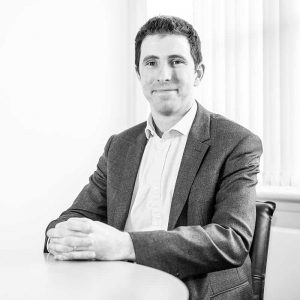
Clients often ask me;
- How much do I need to keep in cash?
- How much should I invest?
- How long should I put it away for?
- What do I do if I need my money out?
To help answer these questions I thought I would share with you a concept I have been discussing with clients throughout my career. It is still as relevant today as it has always been.
These same questions arise no matter what my clients’ circumstances. I have clients who are just starting to save for the future, some who are planning to retire, some who have already retired, clients who have recently received an inheritance or simply have excess cash that they are not planning to use in the short term.
I always recommend that they have three pots of money in their financial plan.
Pot 1, Emergency Fund
As a minimum, you should always have 6 to 9 months’ worth of essential monthly expenditure as “Emergency Cash”. This money is there to protect you against events such as redundancy or ill health but also things like car emergencies or the boiler breaking down. This money should be kept in an instantly accessible cash account with no penalties for accessing it. The benefit of this pot of money is that, if something drastic does happen, you do not have to pull money out from longer term savings or look to borrow money at extremely high rates, think credit cards or loans.
Pot 2, Cash Reserve
This is money that is planned to be spent over the next 3 to 5 years and extra cash to provide a buffer against investment risk. It should only be held in cash and could be saved in a short term fixed rate bonds or cash ISAs.
For example, if you are planning to change car or build an extension in this timeframe, you should certainly not invest this money in risk based assets. The time frame is to short and as you know that you are going to spend the money on, why risk it?
As well as planned spending you should hold an amount of cash to protect you against market movement and investment risk. This should be a reasonable percentage of your portfolio, you could base this on 3 years of essential annual spending or 3 years worth of the difference between your fixed income and your expenditure.
The exact amount of cash reserve will be based on your wider circumstances. Consideration should be given to your attitude towards risk, capacity for loss, level of borrowing and your experience of investing, when deciding what is a suitable cash reserve for you as an individual.
You may look at this and think, why would you hold so much cash when the returns could be better in alternative investments?
The benefit of a suitable cash reserve is, if an emergency arises at a time when your longer term investments are not performing well or are at a negative value, you do not need to sell these investments and realise your loss. This avoids turning a “paper loss” (while you still hold the asset) into a “real loss” (once you sell them). This gives you the opportunity to allow those investments the timeframe needed to potentially recover their value. Your longer term investments should also be held in tax efficient wrappers such as ISAs, pensions or investment bonds. The benefits of which could be heavily impacted by needing to raid these wrappers at the wrong time.
The additional benefit of a good cash reserve is, if you have an emergency that means you have spent all the money in pot 1, you have additional cash to with which to replenish it.
Pot 3, Longer term investments
This is any money that is not being used in the first two pots. Think about it, if your money is not being used for emergencies, not being spent soon or providing a cash reserve, why bother to hold it in cash?
This is the money that should really be planned for over the longer term. By longer term I mean anything over 5 years as a minimum and although that may sound like a long time, ask yourself these questions:
When was the last time you had an emergency that cost you all your emergency fund?
When was the last time that you had an emergency that forced you to spend all of your emergency fund and the cash reserve we have put in place?
If the answer is never, this is why you should consider putting excess money away for the longer term.
By investing this money over the longer term, you have the potential to attract a greater return than that offered by cash, you can use more tax efficient wrappers for your investments and you can start to build a plan for your future.
This 3 pots process may seem very straightforward or something you are doing already which is great, the next step from here is to build a long term strategy that ensures you achieve your goals for the future.
I help my clients to build detailed cash flow plans that enable them to think about the bigger picture, whilst having the confidence of knowing they have a safeguard against short term emergencies. By working through this process, I can answer those important questions from the start and then show you the advantages of longer term financial planning.
If you are interested in discussing any of the details outlined, please do not hesitate to contact us at Wingate Financial Planning.






